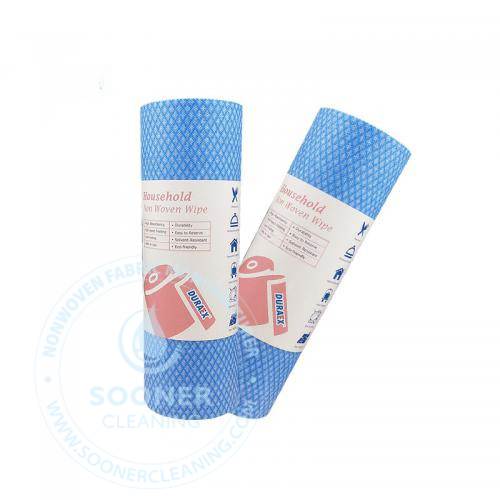1. The role of kitchen cleaning cloths is far greater than you might think.
Kitchen cleaning cloths, though small, play a crucial role in food safety, environmental hygiene, and customer satisfaction. They are widely used in:
Cleaning grease stains in home kitchens
Daily cleaning in restaurant chain kitchens
Wiping down hotel rooms and kitchen areas
Wiping in sterile environments in food processing plants
II. Analysis of Common Kitchen Cleaning Cloth Materials (Procurement Selection Basics)
Material Type
|
Features and Suitable Scenarios
|
Ultra-fine Fibre Cloth
|
High water absorption, easy oil removal, durable, suitable for daily cleaning and high-end markets
|
Spunlace Non-woven Cloth
|
Soft, lightweight, low-cost, suitable for single-use or semi-disposable applications
|
Bamboo Fibre Cloth
|
Antibacterial, eco-friendly, suitable for markets emphasising health concepts
|
III. Functional Requirements for Kitchen Cleaning Cloths in Different Scenarios
Usage Scenario
|
Requirements for Cleaning Cloths
|
Restaurant Chain Stores
|
Heavy grease stains, requiring strong grease removal and easy-to-wash fabric
|
Housekeeping Service Companies
|
Multi-scenario use, requiring quick water absorption, fast drying, and low cost
|
Supermarket Household Goods Brands
|
Emphasising attractive packaging and eco-friendly labels, suitable for customisation and private labelling
|
Food Processing Factories
|
Requires sterile, lint-free, and ISO-certified materials
|
Cross-border E-commerce Sellers
|
Requires rich colours, flexible packaging, and high profit margins
|
IV.Common Misconceptions in Selecting Kitchen Cleaning Cloths
Misconception 1: Focusing Only on Price, Not Material
Low-quality cleaning cloths cannot absorb water and easily develop odours, resulting in higher long-term costs.
Misconception 2: Confusing household cloths with commercial cloths
Commercial kitchen cleaning cloths need to be more durable, quick-drying, and capable of high-temperature disinfection.
Misconception 3: Ignoring size and packaging specifications
When targeting different markets (e.g., Europe, America, Japan, South Korea, Southeast Asia), procurement must align with local user habits and packaging requirements.
V. How to choose kitchen cleaning cloths? A comprehensive guide to professional procurement logic
VI.Do kitchen cleaning cloths require certification? Professional buyers, take note!
✅ ROHS Certification (environmentally friendly materials)
✅ REACH Certification (EU market access)
✅ ISO9001, ISO14001 (Factory Quality Control)
✅ Antimicrobial Certification Report (Suitable for Food Processing and Export Markets)
VII.FAQ: Common Purchaser Questions and Answers
Q1: Do you offer OEM branding for kitchen cleaning cloths?
Of course! We provide one-stop OEM services, supporting customisation in terms of design and size, tailored to the needs of cross-border, supermarket, and e-commerce channels.
Q2: What is the minimum order quantity for kitchen cleaning cloths? Can small batches be produced?
We offer flexible minimum order quantities, which vary depending on material and customisation requirements.
Q3: What quality certifications have your kitchen cleaning cloths obtained?
Our flagship products are certified, and some models come with antibacterial test reports, suitable for export markets.
Q4: What is the standard lead time? Can you accommodate urgent orders?
The standard lead time is 15–25 days. For in-stock standard models, shipment can be arranged within 3–5 days. With years of export experience, we have the capability for rapid response and large-scale delivery.
Q5: Do you offer free samples? How can I request them?
Yes, free samples are available for testing. Click the button below or contact us to provide your shipping information, and we will send them out.
👇 Get your kitchen cleaning cloth sample pack + wholesale quote now!
✔ Free customised samples ✔ Multiple material options ✔ Private labelling available ✔ Flexible minimum order quantities
📦 【Request free samples】 button


